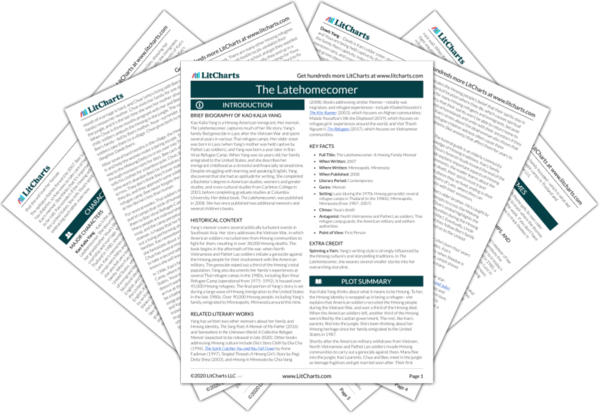Chue’s struggles with her resume is an example of how shows that the family’s experiences as refugees continue to have lasting effects on their day-to-day lives. Despite the family’s dogged efforts to overcome their language barrier, gain qualifications, and find work, they also have to deal with people shaming them for their low socioeconomic status. Dawb helping Chue get a job shows how immigrant children often step in to offer support with language and professional issues, which adds to their daily workload on top of school and trying to assimilate and socialize. And after years of effort, the only work that Bee and Chue can find are grim factory jobs, which highlights how grim and demoralizing immigrant life can be.


